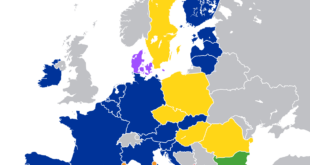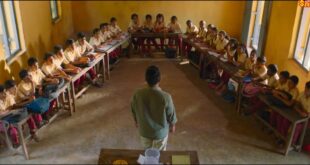- It is after many years that we have a judgment which elaborates on the meaning of equality under India’s Constitution in its true and expansive spirit.
- Here I am not referring to the majority judgment in the Economically Weaker Sections (EWS) case, but the minority opinion of the Chief Justice of India (CJI) U.U. Lalit (now former CJI) and Justice Ravindra Bhat.
- It may be a dissenting judgment but it gives us strength to fight for the promise of equality which forms the core of the Constitution.
- The 103rd Amendment inserting Articles 15 (6) and 16(6) to the Constitution, permits 10% reservation in educational institutions and public employment for those from the EWS. This reservation explicitly excludes persons from the Scheduled Castes (SC), Scheduled Tribes (ST) and the Other Backward Classes (OBC) categories.
- The majority judgment of Justices Dinesh Maheshwari, Bela M. Trivedi and J.B. Pardiwala upheld the constitutionality of the amendment and held that such exclusion was justified because the SC, ST and OBC categories had reservations under Articles 15(4), 15(5) and 16(4).
- They held that a ‘mere violation of the rule of equality does not violate the basic structure of the Constitution unless the violation is shocking, an unconscionable or unscrupulous travesty of the quintessence of equal justice’ and that ‘if any constitutional amendment moderately abridges or alters the equality principles, it cannot be said to be a violation of the basic structure’.
- The Supreme Court of India has held that in understanding what forms part of the ‘basic structure’ of the Constitution, that inviolable part which can never be tampered with or altered, equality is an integral part of it.
- It is one of those core features without which the Constitution will not be recognisable and can never be taken away, however ‘minor’ such violation may be.
Turning intersectionality on its head
- If poverty is the criterion for reservation, it is a matter of record that the bulk of the poor in the country are from Dalit, Adivasi and Bahujan communities due to centuries of stigma and discrimination they have experienced.
- How can they be excluded based on their caste status? The dissenting judgment eloquently recognises that human beings do not exist in separate distinct ‘silos’.
- A person who is poor, would also most likely be from an oppressed caste background, minority religion, female or may have a disability, and in fact many of these conditions may be the reason for her poverty.
- The UN Committee on Economic, Social and Cultural Rights recognises that “discrimination may cause poverty, just as poverty may cause discrimination”.
- The EWS amendment turns the theory of intersectionality on its head. The concept of intersectionality is a lens for seeing the way in which various forms of inequalities often operate together and exacerbate each other.
- Crenshaw argues that we may talk about race or caste inequality as separate from inequality based on gender, class, sexuality or disability, but fail to see how some people can be often subject to all of these, and the experience is not just the sum of its parts.
- Instead of recognising the aggravated discrimination faced by persons at the intersections of caste and poverty, the EWS amendment punishes them for being at the intersections.
- By excluding the SC and ST communities, the amendment actively discriminates against them. Justice Bhat and CJI Lalit point out painfully that if poverty is the criteria for reservation, then can it be justified that an Adivasi girl would not be entitled to such opportunity because she already has existing reservations, although she falls under the EWS description.
- It would amount to her gender and Adivasi status being used to discriminate against her and from denying her the opportunities for the EWS. They argue that this convenient way of putting people within “silos” fails to locate the individual within a collective and reduces her visibility in the debate.
- Reservations on the basis of caste in Articles 15(4) and 16(4) are not privileges or benefits, but reparative measures meant to level the field for communities facing social stigmatisation.
- To use this as a ground to deny EWS reservation to the poorest, based on their social backwardness and legally acknowledged caste stigmatisation, the dissent held that it would amount to discrimination which is prohibited under the Constitution.
The essence of equality
- The dissent also makes the link between equality, non-discrimination and the abolition of untouchability.
- First, it recognises the importance of Article 15(1) or the obligation of non-discrimination on the grounds of caste, race, sex, religion and place of birth as an integral part of the Equality Code.
- This is important, because Article 15(1) has been one of the least used Articles in our Equality Code. Courts have historically been reluctant to give a finding of discrimination on any of the prohibited grounds under Article 15(1). Second, the dissent reiterates the importance of Article 17 on the abolition of untouchability in any form.
- It recognizes that Article 17 imposes an obligation on the state to prohibit caste discrimination in any manner and is not only part of the Equality Code but indeed the entire framework of the Constitution.
- Thus, the dissent states that the obligation not to exclude or discriminate against SC/ST communities by reason of the express provisions in Articles 17 and 15(1) constitutes the essence of equality, and this can be said to be part of the basic structure of the Constitution.
- This is by far the most crucial part of the dissenting judgment, and we would all be at a loss if we fail to recognise its importance.
- The UN Special Rapporteur on Extreme Poverty and Human Rights, Olivier de Schutter in his latest report states that prohibitions of discrimination generally focus on status-based discrimination on grounds such as sex, caste, race or ethnicity, religion, age, disability or sexual orientation.
- These grounds are deemed particularly “suspect” because they are largely immutable.
- The report states that recognising these status-based horizontal inequalities is essential since victims of discrimination on the grounds of status are disproportionately represented among people living in poverty.
SOURCE: THE HINDU, THE ECONOMIC TIMES, PIB
 Chinmaya IAS Academy – Current Affairs Chinmaya IAS Academy – Current Affairs
Chinmaya IAS Academy – Current Affairs Chinmaya IAS Academy – Current Affairs



